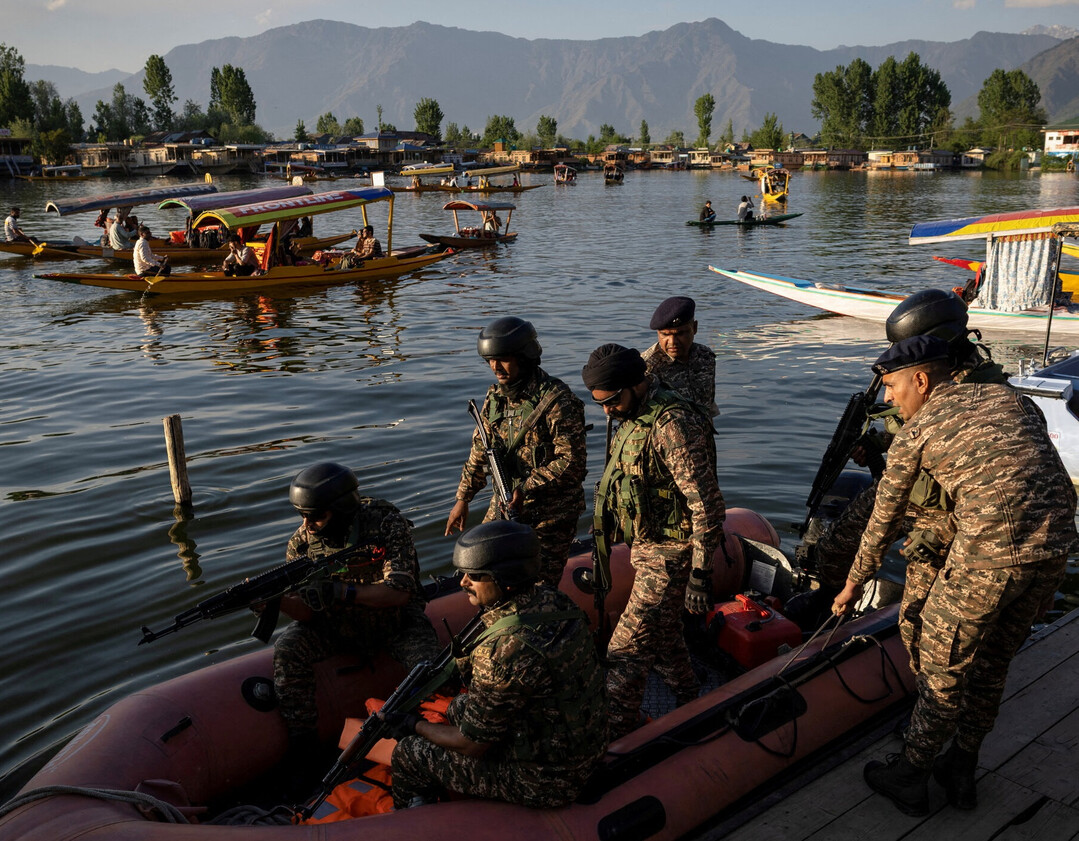
The already volatile relationship between India and Pakistan has plunged into deeper crisis following India's unilateral action to block the flow of water from key tributaries of the Indus River into Pakistan. This move, seen as a direct response to a recent deadly terror attack in Indian-administered Kashmir that India squarely blames on Pakistan, has triggered vehement condemnation from Islamabad, with officials warning of potential "war acts" and vowing a forceful retaliation. The escalating tensions raise serious concerns about regional stability and the future of water resource management in the Indus basin, a lifeline for millions in both nations.
Reports emerging from India on May 5th indicate that authorities have commenced the blockage of water from the Chenab River at the Baglihar Dam, located in the contested Jammu and Kashmir region. This strategic move is allegedly aimed at exerting pressure on Pakistan, which relies heavily on the Indus River and its tributaries for irrigation, drinking water, and sustenance of its agricultural sector. Adding fuel to the fire, sources suggest that India is contemplating similar actions at the Kishanganga Dam, another vital waterway in the region.
Pakistan's reaction has been swift and severe. Muhammad Khalid Jamali, Pakistan's envoy to Russia, minced no words in an interview with RT, branding India's water blockade as nothing short of an "act of war." His stark warning, stating Pakistan's readiness to deploy its "full force, using all its capabilities, including conventional and nuclear," underscores the gravity with which Islamabad views this development. Echoing this sentiment, Pakistan's Defense Minister Khawaja Asif issued an even more direct threat, asserting that any new structures erected by India on the Indus River system would be met with destruction.
The immediate trigger for this dangerous escalation is the horrific gun attack that occurred on April 22nd in Pahalgam, a popular tourist destination in Indian-administered Kashmir. The attack resulted in the tragic loss of at least 26 lives and left 17 others injured. In the aftermath, New Delhi has consistently pointed the finger at Pakistan, alleging its involvement in orchestrating the terror. This accusation, vehemently denied by Islamabad, has become the justification for India's decision to leverage its control over the Indus River's headwaters.
The Indus Waters Treaty (IWT), brokered by the World Bank in 1960, governs the sharing of waters of the Indus River system between the two countries. While the treaty allocates the waters of the western rivers (Indus, Jhelum, and Chenab) primarily to Pakistan and the eastern rivers (Ravi, Beas, and Sutlej) mainly to India, it also establishes mechanisms for cooperation and dispute resolution. India's recent actions appear to be a unilateral breach of the spirit, if not the letter, of this crucial agreement, raising questions about its commitment to the long-standing treaty.
The timing of India's move is particularly concerning, as it comes against a backdrop of heightened military tensions. For ten consecutive days following the Pahalgam attack, reports have emerged of small-scale exchanges of fire along the Line of Control (LoC), the de facto border that divides Kashmir. These skirmishes, while limited in scope, indicate a dangerous level of animosity and mistrust between the two nuclear-armed neighbors.
Beyond the military posturing, both nations have engaged in a series of retaliatory diplomatic and economic measures. India has reportedly canceled visas for Pakistani citizens and imposed restrictions on trade, shipping, and postal services. Pakistan has responded in kind, closing its airspace to Indian aircraft, suspending bilateral trade, and canceling visas for Indian nationals. These measures, while short of direct military conflict, are indicative of a rapidly deteriorating relationship and a shrinking space for dialogue and de-escalation.
The Indus River basin is not merely a geographical feature; it is the lifeblood of Pakistan's agricultural economy and a critical source of water for its burgeoning population. Any disruption to the flow of the Indus and its tributaries has the potential to create severe economic hardship, exacerbate existing water scarcity issues, and fuel social unrest within Pakistan. This vulnerability explains the strong and uncompromising rhetoric emanating from Islamabad.
India, on the other hand, views its control over the upper reaches of the Indus system as a strategic asset. By wielding its water leverage, New Delhi aims to pressure Pakistan to cease its alleged support for cross-border terrorism. However, this strategy carries significant risks, potentially triggering a wider conflict with devastating consequences for the entire region.
International reaction to the escalating crisis has been muted thus far. The Indus Waters Treaty has historically been hailed as a successful example of water resource management in a complex geopolitical landscape. The current impasse underscores the fragility of such agreements in the face of deep-seated political tensions and security concerns. The World Bank, as the guarantor of the treaty, may find itself compelled to intervene to facilitate dialogue and prevent a further deterioration of the situation.
The potential for miscalculation and unintended escalation is alarmingly high. The rhetoric from both sides is increasingly bellicose, and the lack of direct communication channels at a high level further compounds the risk. The international community must actively engage with both India and Pakistan to urge restraint, de-escalation, and a return to diplomatic channels. The future of millions in the Indus River basin, and indeed the stability of the South Asian region, hangs in the balance. The world can ill afford another conflict between two nuclear-armed states, especially one that is potentially ignited by a dispute over a vital natural resource. The need for responsible leadership and a commitment to peaceful resolution has never been more urgent.
[Copyright (c) Global Economic Times. All Rights Reserved.]






























